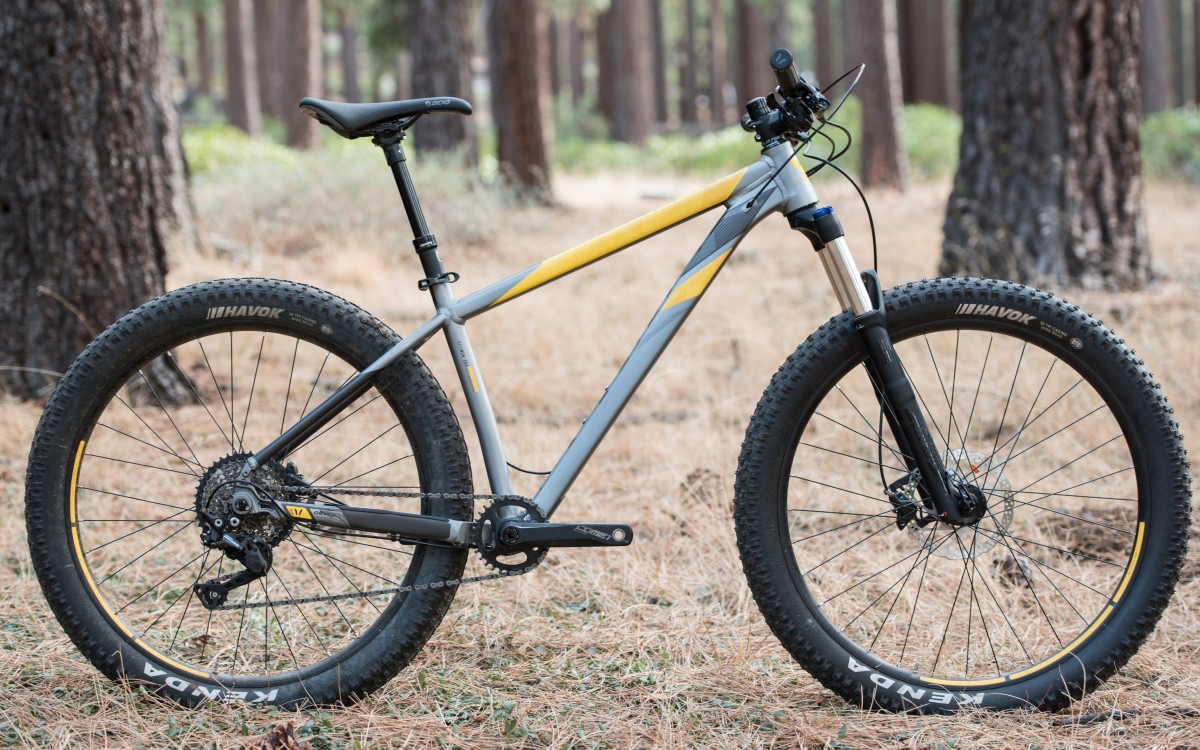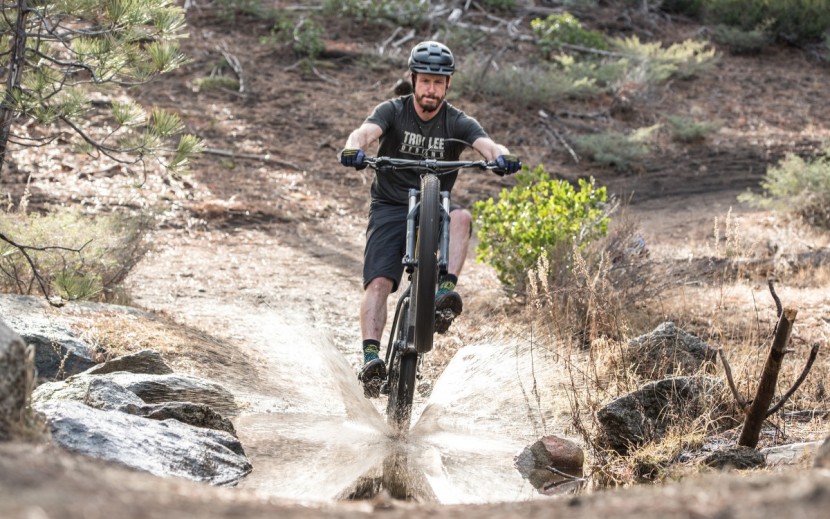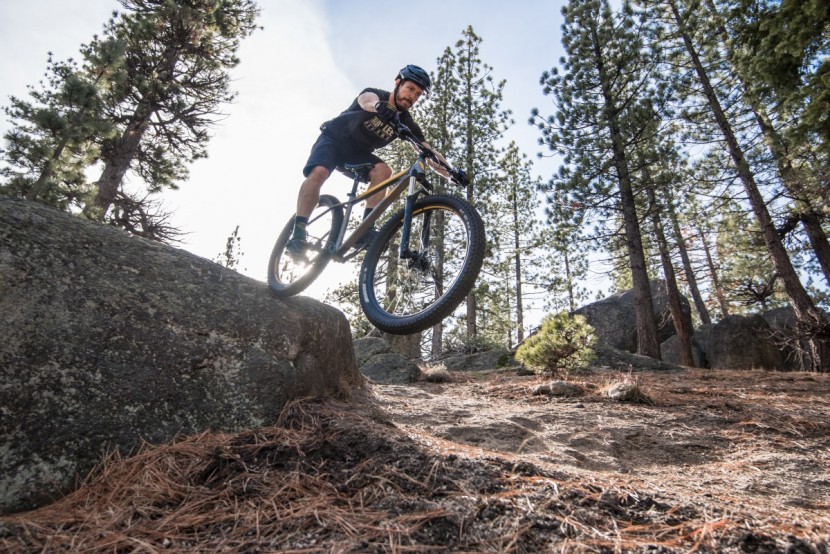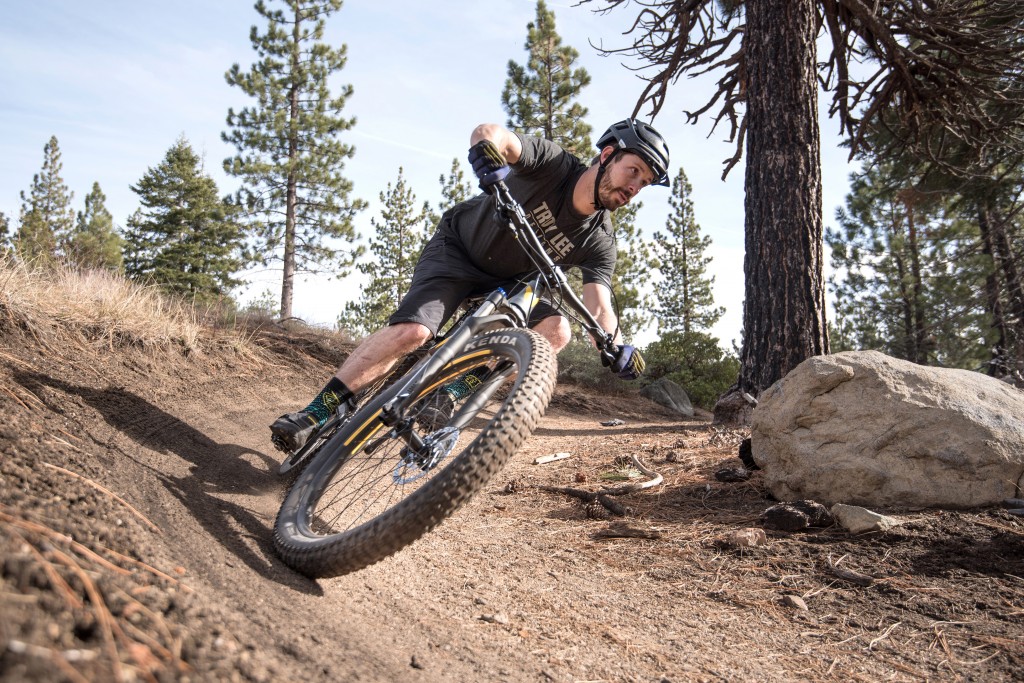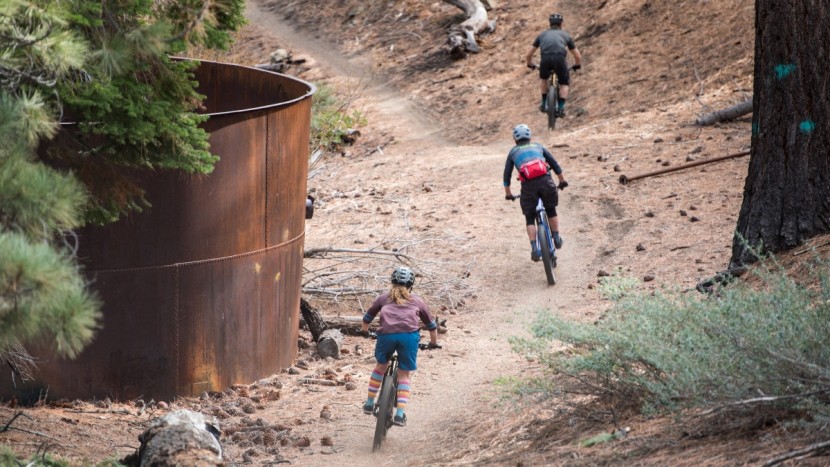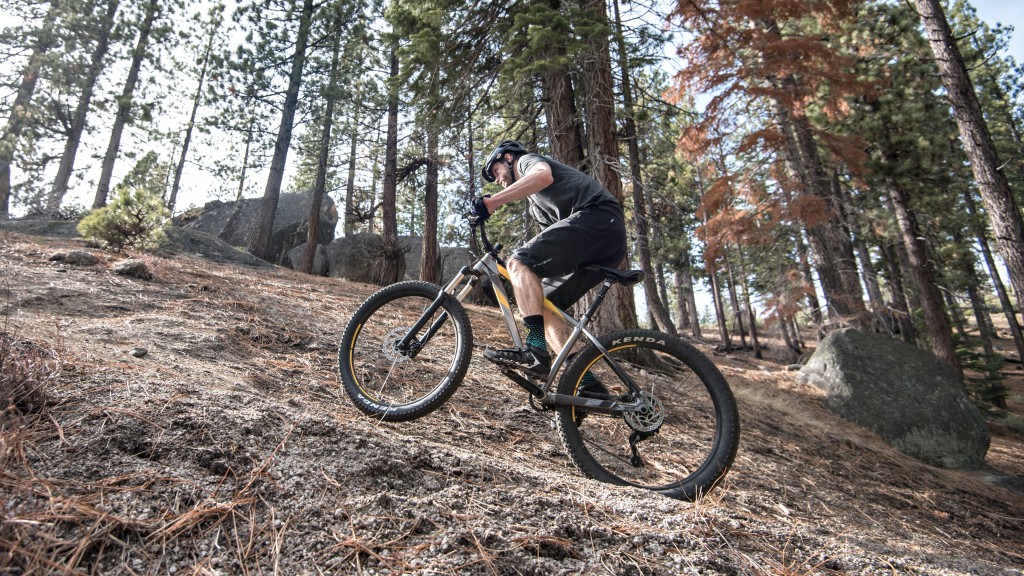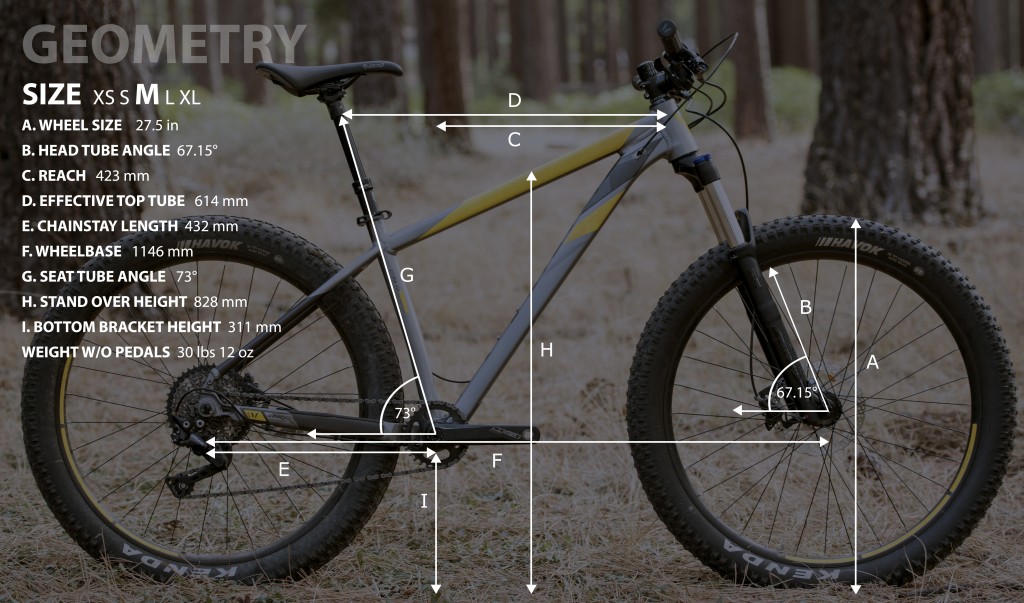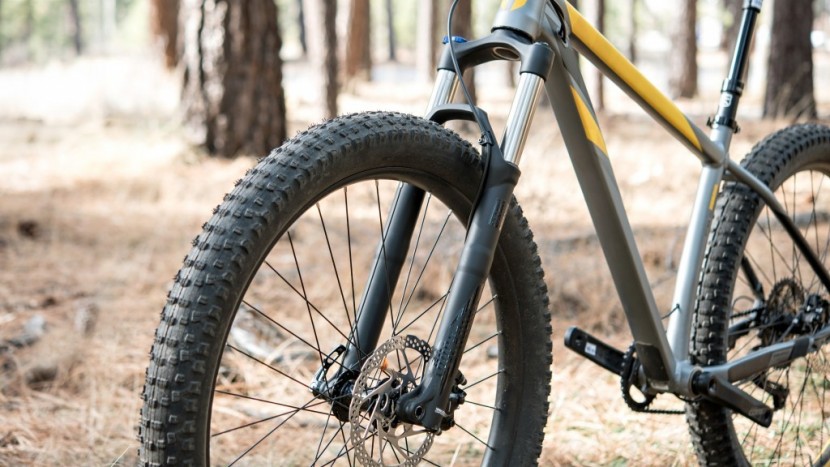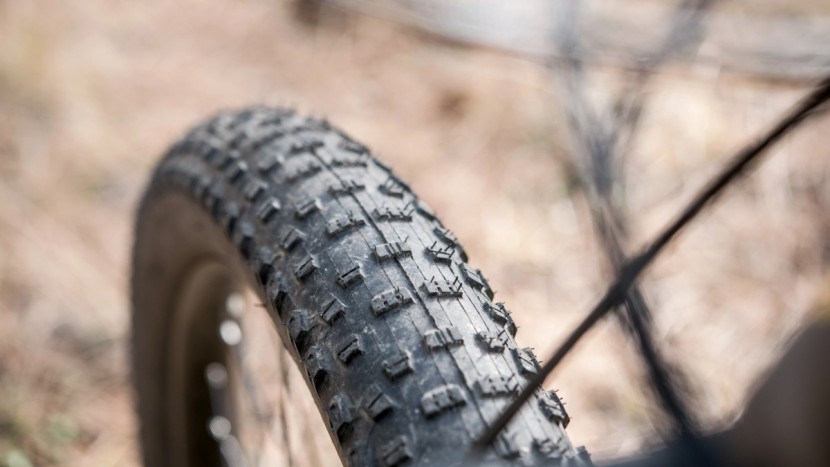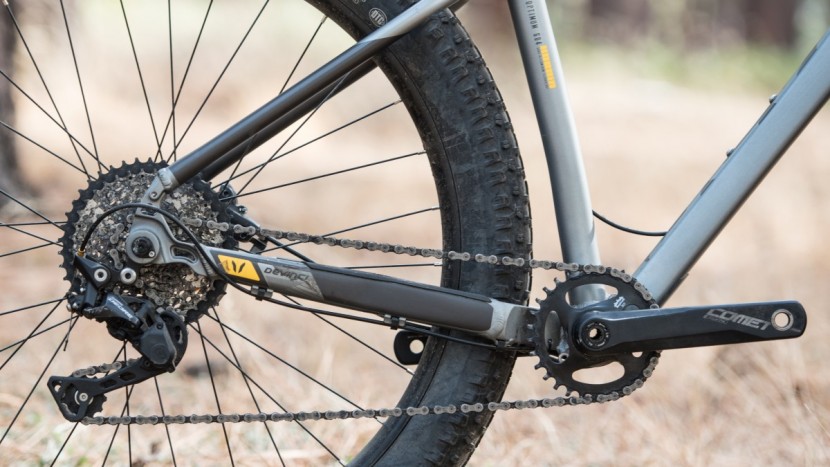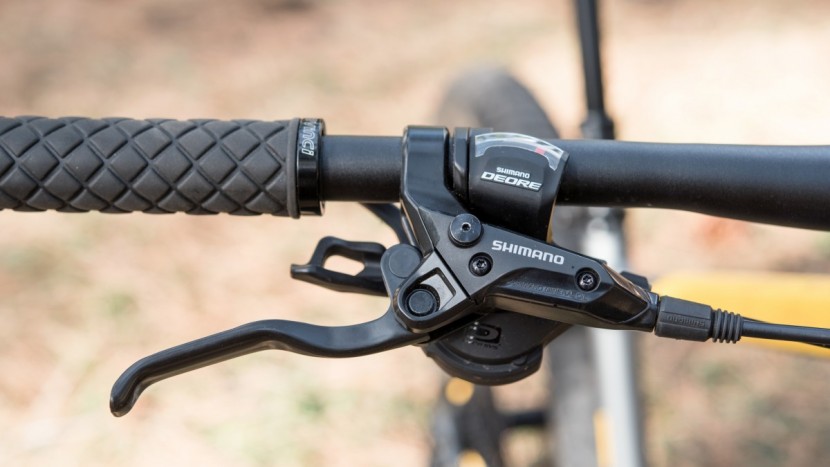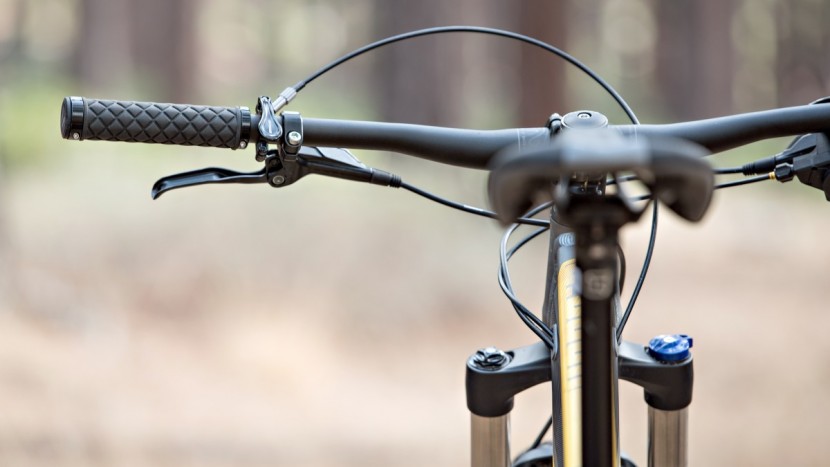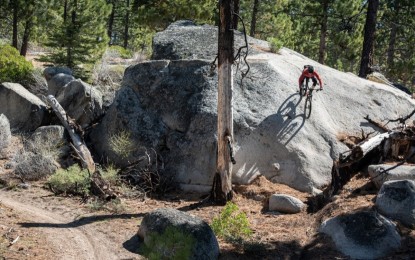Devinci Kobain Deore 2018 Review
Our Verdict
Our Analysis and Test Results
Three professional testers spent weeks riding the Devinci Kobain and Kona Big Honzo against our award-winning Specialized Fuse. We pushed these bikes to their limits to see if these two newcomers could dethrone the reigning champ.
Fun Factor
The Kobain is a reasonably fun hardtail. This bike is at its best flowing down berms and smooth trails. The small and tightly compacted knobs on the tires allow it to roll quickly. The Kenda Havok 3.0-inch tires have a round profile. When you're in smooth or sandy soil, this bike can be leaned onto its shoulder knobs to rail through berms. On loose and mixed trail surfaces, the experience is far less pleasant. The Kobain can't quite match the cornering abilities and quick handling of the Ibis DV9 or Kona Big Honzo.
The Kobain feels longer than some of the other hardtails we tested. The 1146mm wheelbase isn't especially long, but the cockpit feels plenty spacious. As a result, this bike doesn't have the same jumpy or peppy feel that characterizes the Santa Cruz Chameleon and Kona Big Honzo. The Devinci is the most fun with the rubber on the ground.
The relaxed geometry creates a relatively pleasant and comfortable ride. With some more aggressive tires and brakes, the fun factor could skyrocket.
The most fun aspect of this bike is the $1,599 price tag. This bike might be particularly attractive to riders on an ultra-tight budget. While the Devinci may not have you smiling ear to ear like the Specialized Fuse, it will get you out exploring singletrack. That sounds like a pretty fun endeavor to us.
Downhill Performance
The Kobain is a reliable and surprisingly calm descender. Some poor component choices certainly limit how rad you can get on this bike. That said, this is a stable descender that performed respectably.
The Devinci has the angles to be a more confident descender on rowdier terrain than our other hardtails. The spacious cockpit and slack head tube angle lend themselves to stability at speed and confidence on steeper terrain. As mentioned in the Fun Factor section, some components keep the Kobain from reaching its full potential. The RockShox Recon is far from our favorite fork but seems reasonably appropriate for a bike at this price point. The Shimano M315 brakes simply don't have enough power to shut your speed down. This problem is exacerbated by the Kenda Havok tires, which don't have substantial braking knobs.Additionally, these tires have a vague cornering feel in less than ideal soil types. They perform surprisingly well on smooth terrain when you can lean them over. Their performance in the rocks or loose soil is far less impressive.
The 432mm chainstays are on the longer side of the spectrum for a hardtail. In the age of ultra-short chainstays, there is still something to be said for a little extra length. Not only does it add stability, but it can allow some frame flex in the rear end. While it might sound like a negative, an ever-so-slightly flexible rear end can take the harsh edge off on a hardtail. The Specialized Fuse is an excellent example of this. Thinner tubing on the rear triangle of the Fuse offers a bit more flex than the ultra-stout rear end of the Kona Big Honzo. The small amounts of flex make it slightly smoother over small chop than some other test bikes.
While the Kobain is a relatively comfortable descender, it's not especially confident. The more aggressive tread pattern of the 2.6-inch tires on the Specialized Fuse provide more grip and significantly more confidence.
Climbing Performance
The Devinci Kobain is a solid climber. The relaxed geometry isn't quite as conducive to power transmission as other hardtails we tested. That said, this bike is still respectable on the ascent. We knocked the components on the descent; they fared far better when climbing.
The Kobain Deore is outfitted with a Shimano Deore 1x10 drivetrain. That's right, 1x10 in a time where 1x11 drivetrain dominate and 1x12 are becoming more and more common. Despite having fewer gears, the Kobain still offers a 30:42 climbing gear. This is the same ratio found on most 11-speed drivetrains. The small and tightly placed knobs on the Kenda Havok 3.0-inch tires roll well and hooked up nicely on the ascent and have less drag than some other 3-inch tires we've ridden.
The relaxed geometry doesn't exactly put riders directly on top of the cranks like the Specialized Fuse or Kona Big Honzo. Still, the Kobain is an efficient climber. Getting up out of the saddle and hammering the pedals is effective. The slightly more forgiving rear triangle makes seated pedaling through rough terrain more pleasant than some of the ultra-stiff offerings such as the Trek Stache 9.7 and Kona Big Honzo. We still recommend getting out of the saddle when climbing over rough terrain. The Kobain tracks well uphill as the front end stays planted for the most part.
Build
The $1,599 Kobain Deore wears a respectable build kit. There are some highlights and lowlights. That said, the components largely fit the intended application of this hardtail mountain bike.
Fork
The Kobain Deore has a RockShox Recon RL fork with 120mm of travel. The Recon has steel, 32mm, stanchions. The only adjustments are low-speed compression and small amounts of rebound adjustment. While it doesn't feel particularly smooth or plush, this fork is serviceable and found on many other bikes at this price point. It can be difficult to dial in the air pressure on the Recon. Testers found they had to run an unusually high pressure to get the desired amount of mid-stroke support. This high pressure is detrimental to small bump feel.
Wheels and Tires
Formula hubs are laced to V2 Comp rims with a 36mm Inner Diameter. The hubs offer lackluster engagement and can result in a loud clunk when the pawls bite in response to quick pedals strokes. The rims offer a reasonable footprint for the 3-inch tires.
Kenda Havok 27.5 x 3.0-inch tires are a decisively okay. The 3-inch width is certainly effective at taking the edge off of a hardtail. That said, we generally prefer the sharper handling of slightly narrower tires. The Havok has a rounder profile than other tires and allows for vague cornering feel. It is difficult to find the edge of control when leaning the Kobain over.
Groupset
The Kobain Deore is powered by a Shimano Deore 1x10 drivetrain. That's right, 1x10. Shifting is crisp and reliable, but a 1x11 would offer slightly smoother gearing jumps. A 30x42-tooth climbing gear offers the same range as many 1x11 drivetrains.
Shimano M315 brakes are not especially powerful. They require a substantial amount of hand strength on steep terrain. Paired with the poor braking bite of Kenda Havok tires, it can be tough to keep the Kobain under control.
Handlebars, Seat and Seat Post
The Kobain Deore has an FSA dropper post. This cable-actuated 125m dropper post works well once the cable tension is set correctly. Adjusting the saddle height can easily throw off the tension of the cable.
The 780mm V2 Pro riser bars go relatively unnoticed. The 35.0mm clamp diameter is a nice choice.
Build Options
Our Kobain Deore is the more expensive of the two available build kits.
The Kobain RS sells for $1,549. The RS features all of the same components except for one difference. Our test bike had the Shimano Deore M6000 rear derailleur that works with a ten-speed 42-tooth cassette. The RS build has the older Shimano M615 derailleur that accommodates a maximum sprocket size of 36-tooth.
Value
Decent and predictable performance with rideable components at $1,599? That sounds like a good value to us. While the Kobain doesn't blow us away with any performance characteristic, it is a solid all-around bike.
Suggested Upgrades
The first component we would upgrade is the tires. A combination of 2.8-inch Maxxis Minion DHF front tire and Minion DHR rear would be a tremendous upgrade. Cornering traction, braking bite, and climbing grip would all improve dramatically.
More powerful brakes would also be high on the upgrade list. Shimano Deore brakes would offer superior performance, and a Deore brakeset can be found online for approximately $80. This upgrade would be even more potent when paired with more aggressive rubber.
The fork would be an obvious target for an upgrade. The catch? This can be an expensive endeavor. Expect to spend upwards of $500 on a worthwhile upgrade.
Conclusion
The Devinci Kobain Deore is a dependable hardtail at an attractive price tag. While there is no denying the build kit has some lowlights, performance is solid. This well-rounded bike performs respectably on all areas of the trail, making it a viable option for the price-conscious consumer.


